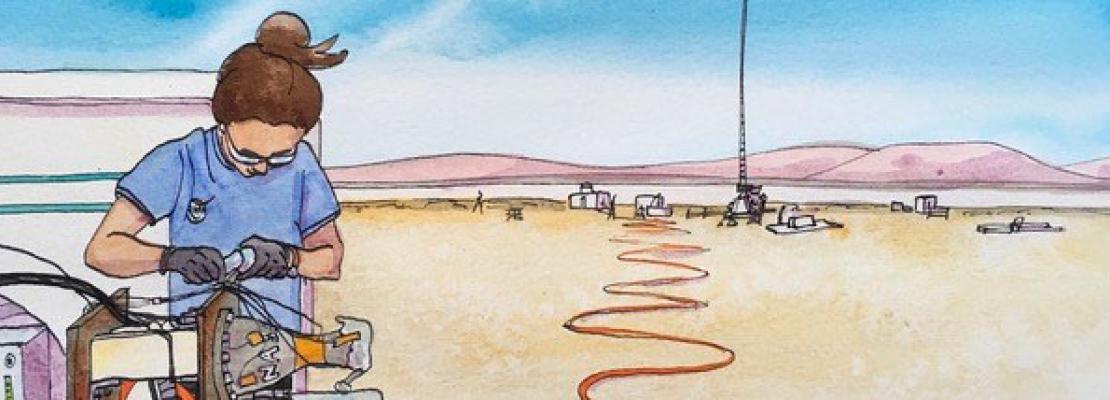In every career journey, there are people who help us imagine what’s possible, navigate the unknown, and advocate for our advancement. These people often show up as role models, mentors, or sponsors—terms that are sometimes used interchangeably, but each plays a distinct and powerful role in shaping pathways, especially for girls and women in STEM.
As we continue to rebuild connection and community after years of remote work and disrupted learning, the need for intentional support systems has never been more urgent. For women and girls—particularly those from historically excluded communities—access to networks, guidance, and advocacy can be the difference between staying in STEM or stepping away.
Role Models: Expanding the Frame
Role models help us see what’s possible. They show us that success in STEM isn’t reserved for a select few—it’s achievable, relatable, and diverse. And in a world where representation still lags, visibility matters. Programs like the IF/THEN® Collection and Career Girls are changing the narrative. They provide thousands of free, high-quality images, videos, and profiles of women in STEM—tools that educators and community leaders can use to inspire the next generation. When girls see someone who looks like them solving problems, leading teams, or launching satellites, they begin to believe they can do it too.
Mentors: Navigating the Journey
Mentors are the people who walk alongside us. They offer guidance, share lessons learned, and help us navigate the complexities of education and careers. These relationships are built on trust, and they’re often the difference between staying the course or stepping away. Mentorship is not a one-way street. Increasingly, we’re seeing the power of reverse mentoring, where younger professionals share insights that help senior leaders better understand emerging perspectives and technologies. Initiatives like SciGirls and Techbridge Girls provide frameworks for inclusive mentoring, while programs like PENTA demonstrated how tiered mentoring—connecting across generations from students to executives—could build bridges across career stages.
Sponsors: Advocating for Advancement
Sponsors do more than advise—they advocate. They use their influence to open doors, recommend talent, and speak up when it matters most. In many ways, sponsors are the accelerators of equity. But sponsorship isn’t automatic. It’s earned through performance and relationships. As Glenn Leibowitz notes, building performance currency and relationship currency is key. When someone sees your impact and trusts your integrity, they’re more likely to invest their own capital in your success. Programs like Million Women Mentors and the ACE Mentor Program are leading the way—mobilizing professionals to sponsor and mentor girls and women in STEM fields.
Building a Support Ecosystem
No one should have to navigate their career alone. And no one person should be expected to meet every need. That’s why we advocate for building a support ecosystem—a network of role models, mentors, and sponsors who collectively help individuals grow, lead, and thrive. Importantly, this work belongs to all of us. Men and women alike have a role to play in advancing equity. As allies, mentors, and sponsors, everyone can contribute to dismantling barriers and creating inclusive pathways.
A Call to Action
If we want to build a future where innovation reflects the full diversity of our society, we must invest in people. That means showing up—for students, for colleagues, and for each other. Let’s commit to being role models who inspire, mentors who guide, and sponsors who advocate. Let’s ensure every girl in STEM has the support she needs to succeed—not just because it’s the right thing to do, but because our collective future depends on it.
Role Model and Mentoring Resources
NGCP curated a list of high-quality role model and mentoring resources to help you serve your programs and communities.


